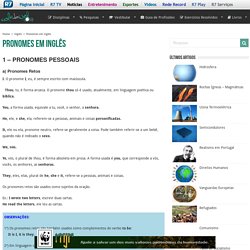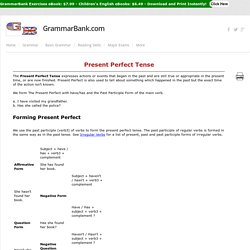

Make. Make, brand n. a recognizable kind; "there's a new brand of hero in the movies now"; "what make of car is that?

" make v. develop into; "He will make a splendid father! " v. form by assembling individuals or constituents; "Make a quorum" v. make by shaping or bringing together constituents; "make a dress"; "make a cake"; "make a wall of stones" v. gather and light the materials for; "make a fire" v. consider as being; "It wasn't the problem some people made it" v. to compile a multi-module program. Adir Ferreira Idiomas. Phrasal Verbs. English verbs. Grammar lessons, vocabulary, business terms, idioms and wordgames for learners of English.
Syntactic phrase structures. Adjectives order (Ordem dos adjetivos) - Brasil Escola. A ordem dos adjetivos serve para que você não escreva mais de um adjetivo de forma aleatória numa frase.

Essa ordem precisa ser seguida de acordo com o tipo de cada adjetivo. Veja abaixo o exemplo: Algumas vezes nós podemos usar mais de um adjetivo na frase: Ex: It´s a beautiful round wooden table. (É uma mesa bonita, redonda e feita de madeira.) Mas há uma maneira correta, ou seja, uma ordem em que esses adjetivos são escritos antes do substantivo. . • Tipos de Adjetivos: OPINION= indica o que você pensa a respeito, ou seja, OPINIÃO! 1- Opinion: indica opinião. FACT= indica o que é verdade, ou seja, o FATO! The Tour of the Tenses - Learn the Most Important Verb Tenses in English. Gramática: Tempos Verbais em Inglês. Seguem abaixo principais textos sobre os tempos verbais em inglês já publicados aqui no Inglês na Ponta da Língua.

Para ler sobre um dos tempos verbais mais comuns em inglês, basta clicar naquele de seu interesse. Caso você esteja procurando por um tempo verbal específico que não esteja na lista abaixo, faça uma busca aqui no blog para saber se eles já foi abordado em algum de nossos textos. Podemos ter esquecido de incluí-lo! Verbs Pictures to Download and Print. Aprenda a falar inglês como americano. Verbling: Online language classes and private tutoring. Let me tell you something about myself.

My name is Kevin A Dean and I am a native Englishman currently living in Prague, Czech Republic. I am well educated and experienced; with a TEFL teaching certificate, a BA degree in History and Politics, a Masters degree in Politics and International Relations, and a Masters of Research degree in Politics, Language and International Studies. In between studying I have lived and taught in Turkey, China, Hungary and the Czech Republic for the last few years and have lots of experience in all aspects of English language tuition. I have taught groups, both large and small, one to one lessons, dealing with general English, Business English and exam courses, such as, IELTS, TOEFL, CAE, etc.. Pronomes em inglês. A) Pronomes Retos.

Present Perfect Tense - GrammarBank. Ever Never Just Already Yet Present Perfect Exercise with Just / Have / Yet JUST: The adverb ‘just’ is used with the present perfect tense to tell a recently completed action.

‘Just’ comes after the auxiliary verb ‘have/has’. This combination is used chiefly in the affirmative, though the interrogative from is possible. It isn’t normally used in the negative. The teacher has just gone out. ALREADY: The adverb ‘already’ is used when something has happened before we expected. I’ve already written a letter to my friend. YET: The adverb ‘yet’ is used when we are expecting something to happen but it hasn’t happened. Mrs. See See more on Gone vs Been Look at the difference between these two sentences. George has been to Spain. -> He’s now at home again. He has been: He has finished his trip and turned back home. He has gone: He has begun his trip. Look at this example in order to see the difference more clearly. Tempos verbais em Inglês. Como na grande maioria das línguas ocidentais, incluindo o português, a língua inglesa está fortemente estruturada em torno de verbos e suas várias formas, os tempos verbais.

Este artigo não é exaustivo em prever todas as possibilidades da língua, mas é abrangente o bastante para cobrir os casos mais comuns. Em inglês, são estes os tempos verbais: Simple Present - utilizado para descrever uma ação habitual, fato genérico, horários futuros e uma verdade universal The company invests in Asia. / A companhia investe na Ásia.The sun rises in the east. / O sol nasce a leste.He leaves the office at 6:00 p.m. / Ele deixa o escritório às 18 h.Dogs bark. / Cães latem. Present Continuous - empregado para descrever uma ação específica que está ocorrendo, ações de maior duração que estão ocorrendo ou então um plano futuro Past Continuous - este tempo verbal trata de ações interrompidas / ações paralelas ou ação repetida no passado ou eventos planejados no passado.
English verb Conjugation: modal verbs, irregular verbs, present, future, participle. English verbs. Frases de ingles com preposição. Frases de ingles com preposição.